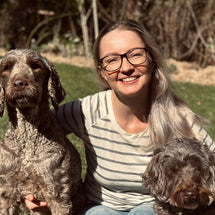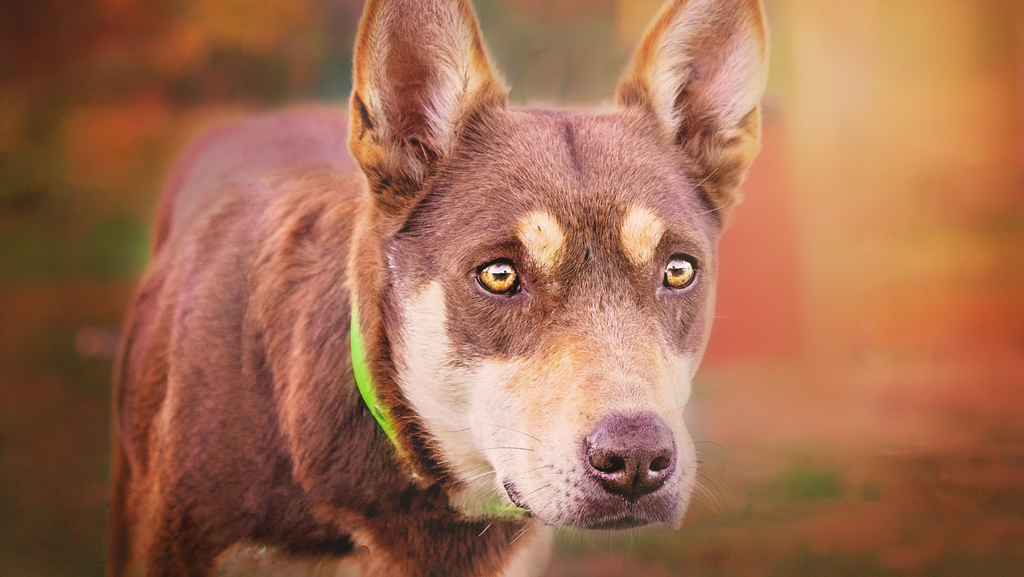Can dogs eat cat food?

The answer is yes, dogs can eat cat food as a once-off, but long-term cat food can cause issues for dogs. Dogs and cats are very different from each other, and it comes as no surprise to learn that they have unique nutritional needs. Dogs and cats should each be fed diets that are specifically formulated for their species due to evolutionary differences that have resulted in different biochemical and physiological mechanisms.
While there are some commercial pet foods available that technically meet the bare minimum requirements for both dogs and cats, it’s far from ideal. They might survive, but they probably won’t thrive.
Can dogs eat cat food?
If you are reading this because your dog and cat just ate each other’s food, there is no need to panic. An occasional meal-swap or scoring a stray kibble off the floor won’t hurt either your dog or your cat [1].
However, it’s best not to make this a habit, as it can be unsafe and cause serious health troubles if dogs and cats eat each other’s species-specific meals long-term.
Malnutrition, either inadequate or excessive nutrition, can result in clinically relevant disease and reduced lifespans in animals.
That’s why it is important to ensure dogs and cats are each receiving the proper nutrition they need and deserve; dog food is for dogs, cat food is for cats.
Why can’t dogs eat cat food?

Dogs are omnivores, meaning they have evolved to consume both animal meat proteins as well as plant material eaten from the stomach of hunted prey or dogs eating grass. If a dog eats only cat food over time, they will be able to survive. However, you will likely see issues caused by a poor balance of proteins, fats and carbohydrates.
A little tin of cat food here and there will do no harm, just make sure that your dog isn’t raiding the cat’s food bowl regularly. Reasons why dogs shouldn’t eat cat food include:
-
Cat food is too high in protein: Long-term, this can strain a dog’s kidneys or cause neurological problems in severe cases. Excesses or deficiencies of certain amino acids fed over time, like too much methionine, can disrupt metabolic functions and strain the liver.
-
Cat food has higher fat and calorie content: Regular access to rich, energy-dense cat food can lead to weight gain or trigger episodes of gastrointestinal upset and pancreatitis in sensitive dogs.
-
Cat food has less carbohydrates: Carbs are a source of fibre and prebiotics for our canine friends for a healthy digestive system, so you may see frequent constipation or other GI issues in dogs fed cat food.
Petzyo’s dry dog food and raw dog food recipes are nutritionally complete and balanced for puppies post-weaning and all life stages. Developed in collaboration with Board Certified Veterinary Nutritionists, we make it easy to trust your pup gets everything they need to thrive.
Every dog is an individual. What works for one dog may not work for another, so speak with your veterinarian if you are unsure. For particularly fussy dogs, diets featuring Kangaroo meat are often a winner.
Why can’t cats eat dog food?
Cats are true carnivores, with specialised metabolic, physiologic, anatomic and behavioural adaptations to prove it [2]. Dog food should never be their main diet, because:
-
Cats need more of certain nutrients: Cats need higher levels of taurine, vitamin A and arachidonic acid than dogs. A deficiency in these is possible for cats fed exclusively on dog food, and can lead to serious health conditions such as heart disease. An excess of these can be too much for dogs.
-
Cats need more protein than dogs: Cats have metabolic quirks and a lack of certain enzymes, meaning they have high dietary protein (nitrogen) requirements.
-
Cats have a lower tolerance for carbohydrates and sugars: Due to lower enzyme activities in the pancreas and liver, cats can’t handle the level of carbohydrates that dogs can.
-
Dog food might not be fatty enough: Cats can’t synthesise certain things from plants like dogs can. This means that cats rely on fattier meats to obtain fatty acids like arachidonic acid and PUFAs.
Why Does My Dog Eat Cat Food?

Because cats are finicky eaters, their food is made to smell better and taste better. You can’t blame your dog for going after a tasty meal, can you? Make sure that you are feeding your dog the correct amount. An underfed dog is going to eat everything that they can find.
Wondering how much food you should be feeding your dog? Petzyo’s Portion Calculator is a handy tool that provides you with a tailored serving suggestion for your individual dog, and includes the common brands fed in Australia.
Tips to prevent meal-sharing between cats and dogs

If you’re both a dog and a cat lover, you can certainly figure out how to keep them at peace during mealtime. How you solve this problem depends a lot on your cat, your dog and your home. Training with positive reinforcement is key, especially in the early days. For more tips, check out our full guide: How to Keep Your Dog Out of Your Cat’s Food.
At the end of the day, cats and dogs have very different nutritional needs long term, and we hope this helps you understand why feeding them species-specific diets is so important.
References
-
Brown, C. Why are dogs obsessed with cat food? https://www.drool.pet/blogs/the-weird/why-dogs-obsess-over-the-cat-food?
-
Li, P and Wu G. Characteristics of Nutrition and Metabolism in Dogs and Cats. Advances in Experimental Medicine and Biology. (2024).1446:55-98. https://link.springer.com/chapter/10.1007/978-3-031-54192-6_4





